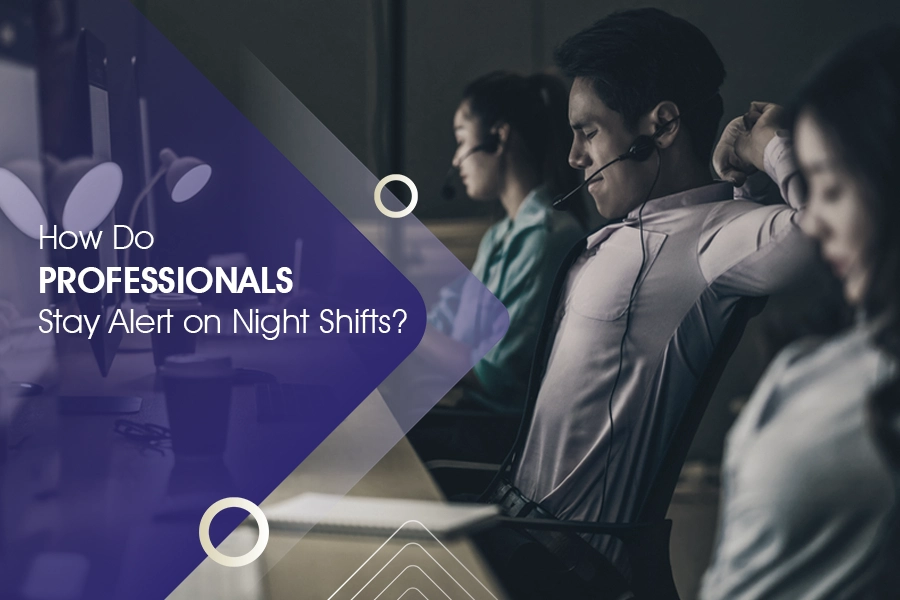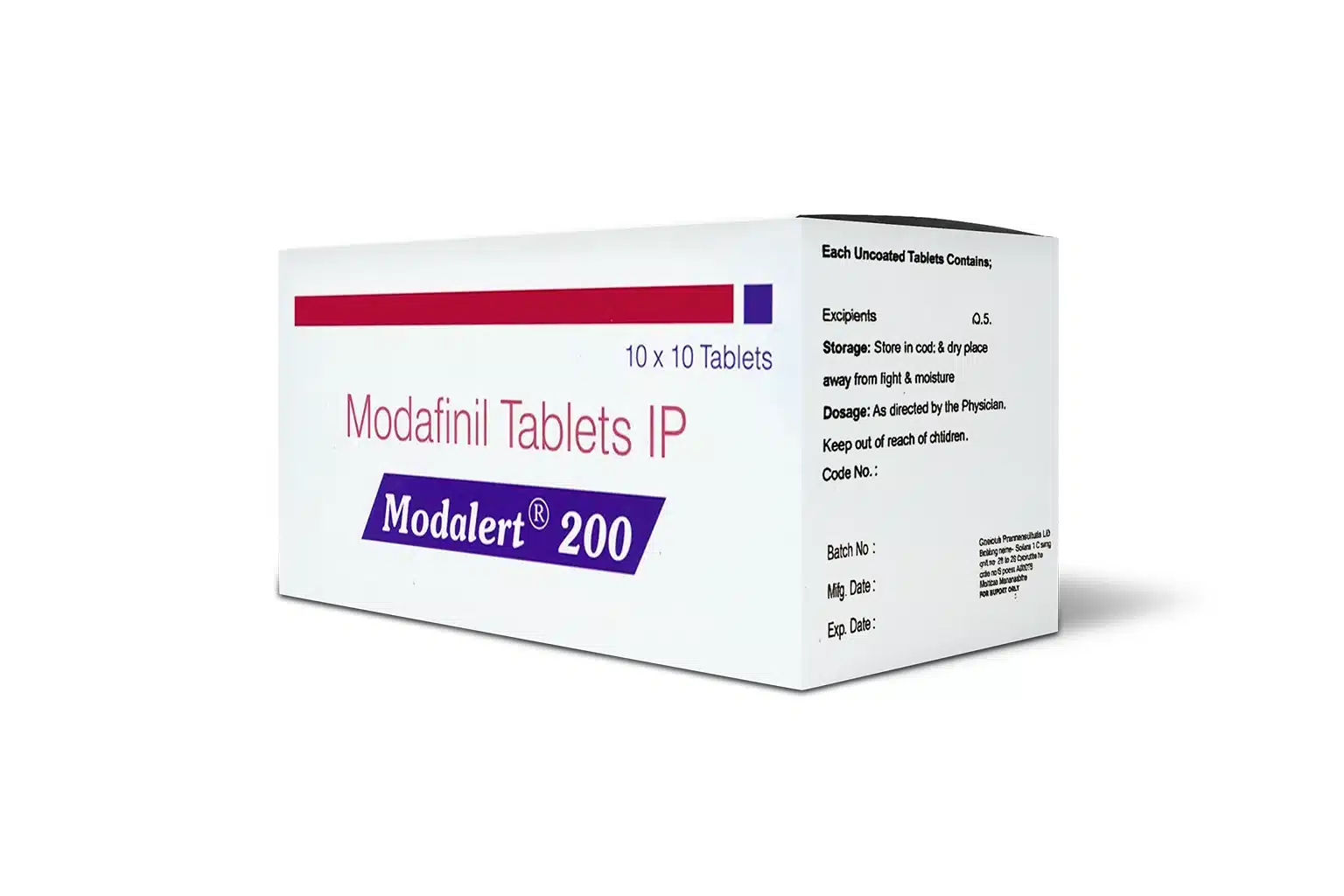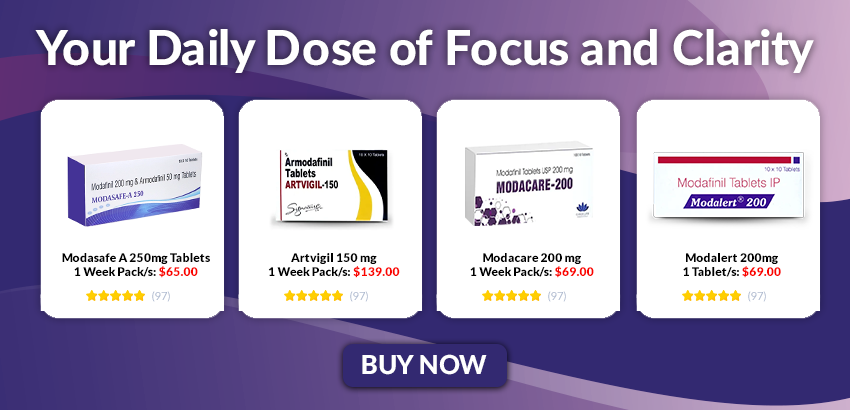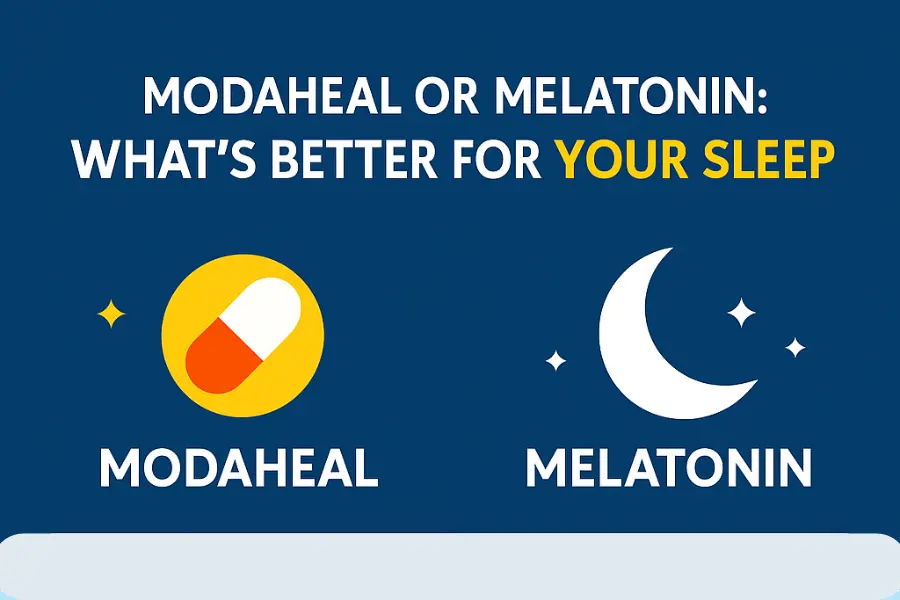How Do Professionals Stay Alert on Night Shifts?

Working the night shift is more than just staying up while the rest of the world sleeps. Whether you’re a nurse, security guard, IT technician, factory worker, or customer support rep, keeping your focus sharp through the night can feel like walking against the current.
But staying awake and alert isn’t about sheer willpower—it’s about smart strategies, healthy choices, and sometimes, a little extra help.
In this article, we’ll explore how professionals manage their energy and attention during overnight hours. You’ll discover effective night shift focus tips, how to fight off drowsiness, what role supplements like Modafil 200 play, and how to optimize your night shift productivity without burning out.
Best sellers
-
Modavinil 200mg
$69.00 – $395.00Price range: $69.00 through $395.00Shop Now This product has multiple variants. The options may be chosen on the product page -
Modafil Md 200 mg
$69.00 – $345.00Price range: $69.00 through $345.00Shop Now This product has multiple variants. The options may be chosen on the product page -
Modvigil 200mg
$65.00 – $395.00Price range: $65.00 through $395.00Shop Now This product has multiple variants. The options may be chosen on the product page -
Vilafinil 200 mg
$69.00 – $395.00Price range: $69.00 through $395.00Shop Now This product has multiple variants. The options may be chosen on the product page -
Modalert 200 mg
$69.00 – $449.00Price range: $69.00 through $449.00Shop Now This product has multiple variants. The options may be chosen on the product page -
Modafresh 200 mg
$65.00 – $329.00Price range: $65.00 through $329.00Shop Now This product has multiple variants. The options may be chosen on the product page
The Real Challenge of Night Work
Our bodies are wired to sleep at night. The circadian rhythm—our internal clock—naturally dips in alertness during the early morning hours, typically between 2 a.m. and 6 a.m. This biological pattern makes staying alert difficult no matter how determined you are. When you’re pushing through this natural sleep window, you’re likely to face:
- Brain fog
- Slower reaction times
- Lower motivation
- Impaired memory or judgment
That’s why simply “powering through” a night shift rarely works in the long run. Professionals who succeed on overnight shifts rely on systems, not just effort.
1. Start with Smart Sleep Scheduling
The best key to nighttime alertness is not a pill or a cup of coffee—it’s sleep. That means taking naps during the day as an absolute necessity.
Recommendations for Improved Daytime Sleep:
- Utilize blackout drapes: Darkness completely tells your body it is time for sleep.
- Use white noise or earplugs: Minimize disturbances generated by daytime noise.
- Create a schedule: Try to go to bed and wake up at the same time each day.
- Steer clear of screens at night: Screens such as phones or TVs emit blue light, which interferes with melatonin, a sleep hormone.
Even if your sleep is not perfect, keeping a regular sleep schedule has a huge effect on how energized you will be in the evening.
2. Eat Right for Night Work
Consuming heavy, greasy foods at night can make you feel heavy and lethargic. On the other hand, existing on sugar and caffeine alone is a definite recipe for a crash of sorts.
Choose light, high-protein meals and snacks like:
- Hard-boiled eggs
- Greek yogurt
- Hummus and veggies
- Whole grain toast with peanut butter
- Protein smoothies
Avoid fast food, heavy carbohydrated foods, and sugary beverages. These foods provide a short-term energy boost, but they actually make you drowsy and mentally fogged short while afterwards.
3. Stay Physically Active
While the entire workout need not be done in your work hours, short spaces of activity can be done to revitalize your energy.
Easy ways to move during your shift:
- Take a brisk walk around your workplace every hour
- Stretch at your desk or in a breakroom
- Use stairs instead of elevators
- Do five minutes of bodyweight exercises on break
Even minor movement enhances circulation, revives your mind, and enhances overall night shift performance.
4. Caffeine: Use It, Don’t Abuse It
Coffee is somewhat of a double-edged sword. For most night shift workers, it is a lifeline; however, too much caffeine—particularly in the later stages of the shift—can destroy your daytime sleep, making you both wired and tired.
Caffeine tips:
- Limit intake to the first half of your shift.
- Stick to 1–2 cups of coffee or tea.
- Avoid energy drinks with high sugar content.
If plain caffeine is not doing the trick, however, some professionals resort to alertness pills for a more potent but more controlled rush.
5. Consider Smart Supplements
For others who are employed at night, especially those in focused industries like medicine or flight, supplements or prescription medication will be useful for active minds. Modafil 200 is a product of this nature, a widely used wakefulness agent. In contrast to a stimulant like caffeine, Modafil 200 acts within the brain to refine focus, reduce tiredness, and enhance alertness.
What to know about Modafil 200:
- It’s often used to treat shift work sleep disorder or narcolepsy.
- It supports sustained attention without the jittery crash of energy drinks.
- It’s only available with a prescription in many countries, so consult your doctor before use.
While alertness pills like Modafil can be helpful for specific roles or demanding shifts, they should never replace good sleep habits or be used without medical supervision.
6. Light Exposure Makes a Difference
Your body’s internal clock responds strongly to light. Bright light tells your brain it’s time to be alert. Darkness signals rest. Use that to your advantage.
Boost alertness with light:
- Use bright overhead lights in your workplace.
- Take breaks near windows if working before sunrise.
- Use a light therapy box early in your shift for a boost.
This can help trick your brain into staying more alert and even shift your internal clock slightly over time.
7. Manage Your Mental Energy
Mental fatigue can sneak up during a night shift, especially if your work is repetitive or you’re sitting in one place for long stretches.
Protect your mental focus by:
- Breaking up tasks into smaller parts
- Changing activities every hour to avoid burnout
- Taking short, regular breaks (5-10 minutes every hour)
- Listening to instrumental music or ambient sound to stay focused
These simple tools can help your brain stay engaged and sharp even when your body wants to rest.
8. Stay Hydrated (Seriously)
It sounds simple, but dehydration is a sneaky enemy on night shifts. It can make you feel tired, foggy, or give you headaches all of which mimic sleepiness.
Hydration tips:
- Drink water regularly, even if you’re not thirsty.
- Add lemon or cucumber to your water for flavor.
- Limit sodas and sugary juices, which dehydrate more than hydrate.
Keeping a refillable bottle at your workstation is an easy way to make sure you’re drinking enough.
9. Power Naps Work (If You Can Take One)
If your job allows it, a 15 to 20 minute power nap during your break can do wonders for your alertness and mood.
Don’t sleep too long, more than 30 minutes can make you feel groggy. Set a timer and nap in a quiet, dark spot if possible. Even a short rest helps your brain reset.
10. Wind Down Right After Your Shift
After a long night, you may feel wired or tempted to stay up for a bit of “me time.” But the sooner you transition into rest mode, the better your recovery will be.
Post-shift wind-down tips:
- Avoid checking your phone or laptop
- Take a warm shower
- Eat a light breakfast
- Use blackout curtains and earplugs
- Keep your room cool and dark
The goal is to signal your brain that it’s time for rest even if the sun is up.
Final Thoughts: Night Shift Success Is Possible
Staying alert during night shifts isn’t about hacks it’s about forming a system that supports your energy, focus, and health. Professionals who excel at night know how to manage their bodies and minds with the right food, rest, movement, and support.
Whether it’s through smart eating, scheduled naps, strategic caffeine use, or targeted help from Modafil 200 or similar alertness pills, the key is being proactive, not reactive.
Use these night shift focus tips to structure your routine, build consistency, and boost your night shift productivity without relying solely on coffee or sheer determination. Your body and brain will thank you.
FAQs
1. How do you most effectively stay awake for a night shift?
The best approach is to get good daytime sleep, consume lots of water, eat light protein meals, and take constant movement breaks, and use bright light. Most people also use concentration aids like Modafil 200 with the help of a doctor to enhance alertness.
2. Is night shift wakefulness medication such as Modafil 200 safe for consumption?
Modafil 200 may be used for increased concentration and alertness for longer shifts, especially in stressful professions. It is, however, a prescription drug and must be taken only on the advice of a medical expert.
3. How much caffeine is too much for a night shift?
Attempt to restrict caffeine to 1–2 cups of tea or coffee during the beginning of your workday. Excessive caffeine or drinking it late can disrupt your sleep after work and cause jitteriness or drowsiness later.
4. Will power naps alleviate night duty?
Yes, brief naps (15–20 minutes) during breaks can prove to enhance concentration and minimize drowsiness. Just don’t sleep longer so that you won’t feel drowsy when you wake up.
5. Why am I tired even when I sleep in the daytime?
Daytime sleep is lighter and more discontinuous. Environmental factors such as light, noise, and variable schedules can complicate being rested. The use of blackout curtains, earplugs, and regular sleep schedules may improve daytime sleep quality.












